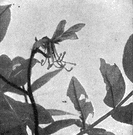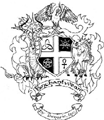
Dittany of Crete is a plant and an herb.
- botanical information
- origin
- history
- magick correspondences and uses
- ancient myths and beliefs
- Goddesses and deities
- cautions and contraindications
botanical information:
Botanical name: Dictamus origanoides or Dictamus albus
Common name: dictame, Dictame de Crete (French), dictame vrai, dictamnus, diktamo, dittany, Dittany of Candie, Dittany of Crete, hop marjoram, hop plant, Mangirotu, origan dictame, Spanish hops
Use the botanical name when ordering seeds (bulbs, etc.) or when looking up information in the library. Common names vary by nation, culture, and region, and sometimes the same common name is applied to different plants.
origin:
Origin: Dittany of Crete originated on the island of Crete and is named for the mountain Dicte on Crete.
history:
History: Ancient shepherds noticed that wild goats would seek out dittany after being wounded by arrows. After eating the plant the arrows fell out and the wounds healed. Shepherds discovered that eating dittany helped heal open wounds in humans also. Later shepherds developed compresses made from dittany leaves.
magickal correspondences and uses:
Gender: feminine (traditional western European magickal gender)
Magickal substitutions: Rosemary usually may be safely substituted for any herb in magick spells and rituals. Roses may safely be substituted for any flower.

Magical Uses information courtesy of 
|
ancient myths and beliefs:
According to Virgil’s version of the Trojan War, Aeneas was severely wounded by an arrow so deeply embedded that it could not be removed. His mother, the Roman Goddess Venus, took some dittany of Crete from Mount ida on the island of Crete, applied it to Aeneas’ wound, causing the arrow to drop out and healing the wound immediately.
Dittany was popular as a therapeutic plant in Minoan Crete, ancient Greece, and ancient Egypt (Kemet). Hippocrates recommended dittany for stomach and digestive system diseases, rheumatism and arthritis, regulating menstruation, healing wounds, and toning the body.
Dittany of Crete is mentioned in Charlemagne’s herb list and was popular throughout the Christian Dark Ages (medieval times).
The active ingredient of Dittany of Crete is the essential oil carvacrol. Dittany of Crete acts as an antiheumatic, oxytoxic, stomachic, and vulnerary.
deities associated with dittany of Crete:
- Venus (Roman Goddess)
cautions and contraindications:
Cautions and contraindications: Dittany of Crete is believed to be safe.
Wild gathering: Avoid wild gathering. Some plants are endangered species. Please grow your own herbs in your own goddess garden (or window boxes).

See also: herbs













